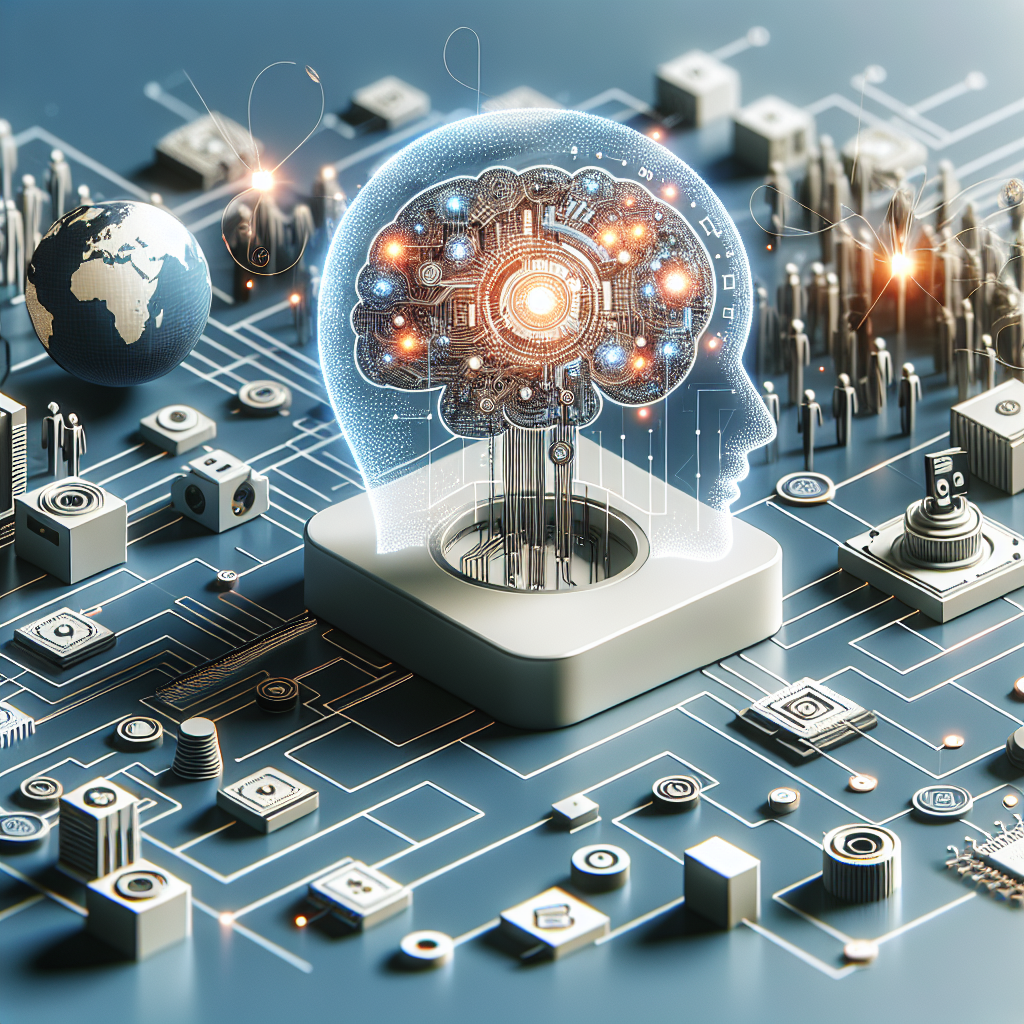Outsourcing AI Development: Key Considerations for Businesses
Artificial intelligence (AI) has become an integral part of many businesses, as it offers numerous benefits such as automation, improved decision-making, and enhanced customer experiences. However, developing AI solutions can be complex and time-consuming, requiring specialized skills and resources. This is why many businesses are turning to outsourcing AI development to third-party vendors.
Outsourcing AI development can be a strategic decision for businesses looking to accelerate their AI initiatives, reduce costs, and access specialized expertise. However, there are several key considerations that businesses should keep in mind when outsourcing AI development to ensure successful outcomes. In this article, we will discuss some of these key considerations and provide insights on how businesses can effectively manage their AI outsourcing projects.
Key Considerations for Outsourcing AI Development
1. Define Clear Objectives and Requirements: Before outsourcing AI development, businesses should clearly define their objectives and requirements for the project. This includes identifying the specific AI use cases, desired outcomes, and technical specifications. By having a clear understanding of what they want to achieve, businesses can effectively communicate their needs to the outsourcing vendor and ensure that the project is aligned with their strategic goals.
2. Choose the Right Outsourcing Partner: Selecting the right outsourcing partner is critical for the success of AI development projects. Businesses should look for vendors with a proven track record in AI development, relevant industry experience, and a strong technical expertise. It is also important to consider factors such as cultural fit, communication capabilities, and project management capabilities when choosing an outsourcing partner.
3. Establish Clear Communication Channels: Effective communication is essential for the success of outsourcing AI development projects. Businesses should establish clear communication channels with the outsourcing vendor to facilitate regular updates, feedback, and decision-making. This could include regular meetings, status reports, and project management tools to ensure that all stakeholders are on the same page throughout the project.
4. Ensure Data Security and Privacy: AI development often involves working with sensitive data, which raises concerns about data security and privacy. Businesses should ensure that the outsourcing vendor has robust data security measures in place to protect their data and comply with relevant regulations such as GDPR. It is also important to establish clear data ownership and confidentiality agreements to protect intellectual property and sensitive information.
5. Manage Risks and Expectations: Like any other outsourcing project, AI development carries risks such as delays, budget overruns, and technical challenges. Businesses should proactively identify and mitigate risks by conducting thorough due diligence on the outsourcing vendor, setting realistic expectations, and establishing clear project milestones and deliverables. It is also important to have a contingency plan in place to address unexpected challenges and ensure project continuity.
6. Monitor Progress and Performance: Monitoring the progress and performance of outsourced AI development projects is essential to ensure that they are on track and meeting the desired outcomes. Businesses should establish key performance indicators (KPIs) and milestones to measure the success of the project, and regularly review progress against these metrics. This could involve conducting regular performance reviews, quality assessments, and feedback sessions to address any issues or concerns in a timely manner.
7. Foster Collaboration and Knowledge Transfer: Outsourcing AI development should not be a one-time transaction, but a strategic partnership that fosters collaboration and knowledge transfer. Businesses should actively engage with the outsourcing vendor, share insights and expertise, and encourage collaboration between internal and external teams. This could include providing training and resources to the outsourcing team, sharing best practices, and promoting a culture of innovation and continuous learning.
FAQs
Q: What are the benefits of outsourcing AI development?
A: Outsourcing AI development offers several benefits for businesses, including access to specialized expertise, faster time-to-market, reduced costs, and scalability. By outsourcing AI development, businesses can leverage the skills and resources of experienced professionals, accelerate their AI initiatives, and focus on core business activities.
Q: How can businesses ensure data security when outsourcing AI development?
A: Businesses can ensure data security when outsourcing AI development by conducting thorough due diligence on the outsourcing vendor, establishing clear data security measures and protocols, and signing data security and confidentiality agreements. It is important to work with vendors that have robust data security measures in place and comply with relevant regulations to protect sensitive information.
Q: What are some best practices for managing outsourced AI development projects?
A: Some best practices for managing outsourced AI development projects include defining clear objectives and requirements, choosing the right outsourcing partner, establishing clear communication channels, ensuring data security and privacy, managing risks and expectations, monitoring progress and performance, and fostering collaboration and knowledge transfer. By following these best practices, businesses can ensure successful outcomes for their AI development projects.
In conclusion, outsourcing AI development can be a strategic decision for businesses looking to accelerate their AI initiatives, reduce costs, and access specialized expertise. By considering key factors such as defining objectives, choosing the right partner, establishing clear communication, ensuring data security, managing risks, monitoring progress, and fostering collaboration, businesses can effectively manage their outsourced AI development projects and achieve successful outcomes.

